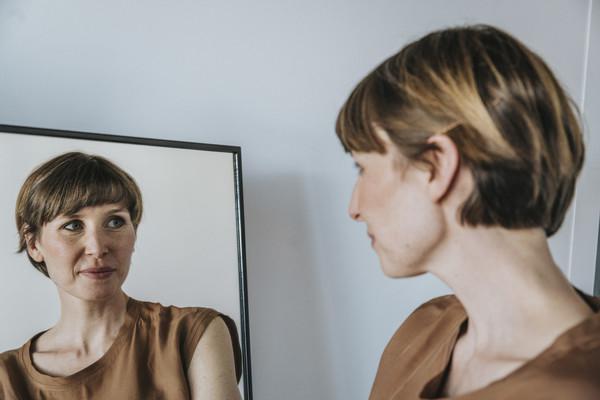Know Yourself
Curated from: theschooloflife.com
Ideas, facts & insights covering these topics:
18 ideas
·11.4K reads
30
Explore the World's Best Ideas
Join today and uncover 100+ curated journeys from 50+ topics. Unlock access to our mobile app with extensive features.
Knowing Yourself
Self-knowledge is the ultimate knowledge, and to know yourself is to know the meaning of life. There are millions of things we could know about ourselves, ranging from anecdotal to emotional or psychological matters. There are certain key bits of self-knowledge that we think might benefit us, like our work talents, or a partner who would be compatible with us.
Self-knowledge provides us with a route to a happy and fulfilling life. A lack of self-knowledge makes our lives accidental.
359
1.78K reads
Where Self-Knowledge Matters: Love
- Choosing the right partner: We often look at a partner who is kind, attractive or fun to be with. We don’t consider our own neurotic, unbalanced or immature behaviour, and how it would affect our partner.
- Childhood patterns are repeated: Like the ‘bad boy’ syndrome, most of us repeat unhealthy patterns from our childhood unconsciously, going for people who will be miserable for us in ways that are familiar to us.
317
1.36K reads
Where Self-Knowledge Matters: Work
Without self-knowledge, we are vague about what we want to do with our lives.
Money always tends to be an urgent need, and we rush towards jobs that lock us into cages for decades, and we start to believe we are good for nothing, or not cut out for bigger roles.
306
1.05K reads
Where Self-Knowledge Matters: Spending Money Unwisely
Without self-knowledge, we have hunches on what makes us happy: We wrongly calculate what our purchases, or impulse buys would make us feel. We travel to a certain place and feel disappointed. We buy the latest dress, hoping to look good, but are only surrendering to consumerism.
Without knowing ourselves, we cannot spend money in a fulfilling way.
301
939 reads
Reasons Why Self-Knowledge Is Rare
- The unconscious mind performs most of our tasks and even how we behave.
- Our mind is divided into three parts: the primitive the limbic(emotions and memories) and the neocortex (higher reasoning). We are mostly operating from the primitive or emotional parts of the brain, resulting in a lack of self-inquiry.
- There is a natural resistance to unravelling the unconscious into the conscious, as we do not tap into ourselves out of fear of knowing the truth.
- We are not given adequate feedback about our own identity by others, who dislike us or don’t want to hurt us. For example: Friends don’t want to sound impolite or upset us.
- We haven’t lived long enough to realize the importance of self-knowledge, and haven’t tried out stuff to know the difference through experience. Example: While choosing the right career, we are still in a trial-and-error mode, switching from one job to another.
- We are vague in our judgement, and are living life in binary mode, where things are either good or bad, black or white, sweet or sour.
- We aren’t introspecting enough, as we don’t know that we can self-analyse or opt for psychotherapy, unpackaging our thoughts.
330
683 reads
Get More Self Knowledge: Relationships
- Repetition Compulsion: We tend to go for a certain type, which may be tied to our childhood suffering, and in our unconscious search for a partner we would find suitable, we are repeatedly drawn towards a problematic person, and lack the self-knowledge to see the pattern.
- Projection: Our assumptions, beliefs, biases and thought patterns project themselves on others, and certain ambiguous situations are taken to be something else depending on the state of our mind.
298
634 reads
Get More Self Knowledge: Confrontation And Criticism
- Confrontation styles: We are having four kinds of styles when we confront others: passive, aggressive, passive-aggressive, or assertive. Our behaviour depends on the situation we are in.
- Criticism: We respond to criticism in a variety of ways, like denial, self-loathing, acceptance or positive transformation.
296
640 reads
Get More Self Knowledge: Career
- Vague Ambitions: We talk of helping others, or being creative, or changing the world. Admirable they may be, but the ambitions are vague because we don’t know ourselves.
- Attitudes To Ambition: Most of us suffer from a problematic attitude towards success. Our thoughts move us towards inaction and doubt, leading to failure. Our attitude makes us apply conditions to our happiness(I will be happy when I have this), leading to misery.
294
533 reads
Get More Self Knowledge: What Others Can Know Of Us
Self-knowledge makes us understand how we impact others, allowing us to adjust ourselves, being more interested in the other person rather than just ourselves.
Strangers are surprisingly good at guessing stuff about us, though we find it difficult to grasp. We don’t realize what information we give out to others, or how our behaviour annoys them. They might find us hogging the limelight or only talking about our own struggles and experience, unable to be impressed by what others are doing.
293
439 reads
Get More Self Knowledge: Family Dynamics
- How We Feel About Our Family: We all have complicated feelings towards our family members, and may have unconscious attitudes and biases that can play havoc. It can be guilt, envy or disloyalty.
- Blame And Self-knowledge: We blame our parents for things that are clearly not their domain. They may not be perfect, but it doesn’t help to shift all responsibility to your guardians and be miserable or emotionally crippled your whole life.
295
429 reads
Get More Self Knowledge: Our Primitive Mind
- Self-knowledge can describe accurately how one is feeling, through introspection or self-inquiry.
- Knowing yourself also means being aware of your self-machinery, or how your mind operates and distorts the world around you.
- The primitive, part of our brain is interested in our survival and does not have the capacity for morality, empathy or being deeply insightful.
- The evolved, mature brain, the neocortex, which came much later, is sophisticated but is not as strong as the primitive brain.
- Our hopes, fears and desires belong to our reptilian minds and overpower us most of the time.
292
376 reads
How To Gain Higher Consciousness
- Developing a capacity to observe our basic instincts: The times when our minds are free from subjectivity, defensiveness and self-justification(like late at night when it is quiet), we get a glimpse of truth, a tiny moment of wisdom or insight about how we behave.
- Developing a capacity to understand other people’s behaviour: We normally react automatically, almost reflexively, to how others behave. Our natural reaction matches the primitive action we see in others. A better option is to understand the person’s primitive action as a sign of distress and hurt, rather than their being evil.
303
430 reads
Our Feelings And Our Beliefs
We are always more inclined to believe in what we feel.
When we become suspicious of our feelings and try to trust data and our rational mind, we move beyond biases and prejudice that exist in our feelings and emotions.
286
395 reads
Mental Processes
Many of our mental processes, mood swings and irrational behaviour can be explained by simple facts like not being hydrated, not being fully rested, being stressed, or being hungry. These physiological reasons can be the real culprit and make tiny problems seem enormous, but it takes a higher consciousness to realize the same.
Example: Not having breakfast and going to a tricky meeting can have us considering resignation.
296
351 reads
Philosophical Meditation: A New Approach
According to a Buddhist world-view, our anxieties and worries are not really important or purposeful but only seem so. Buddhist meditation wants our thoughts and anxieties to bother us less and tells us that these thoughts are nonsensical or meaningless.
Philosophical meditation does the same but does not tell us to empty our minds and discard the thoughts, as they are signals with complex clues that can help us develop ourselves.
286
322 reads
Philosophical Meditation: How To Practice
- Set aside 20 minutes on a daily basis and sit with a paper and pencil, asking yourself simple questions like: What am I regretful, anxious or excited about in the present moment?
- Write down what comes to your mind immediately without censoring or thinking. Do it as unselfconsciously as you can.
As we practice this meditation, we help ourselves by understanding our internal conflicts, desires and problems, and find clear insights in the otherwise confusing set of chaos and floating thoughts. Problems don’t go away, but demystify themselves, becoming manageable.
310
343 reads
Speed Up Self Knowledge: A Great Conversation
We can get to know ourselves by conversing with others, but not how we think a conversation should be. The key to a great conversation is asking the right questions and then listening well.
Some examples: Think about what flaws of yours you want to be treated in a better way, or what compliments would you like to get; Ask about some incident they want to apologize for.
Be vulnerable, foolish and real. Talk your heart out.
292
345 reads
A Knowing, Wise Person: Impact Of Self Knowledge
- People with self-knowledge are less prone to blame their problem on others.
- They admit to the full extent of responsibility when things go wrong.
- They are less frustrated at work, even though they don’t have the perfect job.
- When problems arise, they don’t panic, as they are in control of the psychological fear, like humiliation, rejection or boredom.
- They are not envious, less stressful, and apologize as soon as a mistake is committed.
- They tend to be great conversationalists and they feel complete within themselves.
302
424 reads
IDEAS CURATED BY
Khalid Faez's ideas are part of this journey:
Learn more about personaldevelopment with this collection
Effective communication
Persuasion techniques
Closing a sale
Related collections
Similar ideas
3 ideas
Trying to Be Kinder to Ourselves
theschooloflife.com
3 ideas
A More Spontaneous Life
theschooloflife.com
4 ideas
Straightforward vs. Complicated People
theschooloflife.com
Read & Learn
20x Faster
without
deepstash
with
deepstash
with
deepstash
Personalized microlearning
—
100+ Learning Journeys
—
Access to 200,000+ ideas
—
Access to the mobile app
—
Unlimited idea saving
—
—
Unlimited history
—
—
Unlimited listening to ideas
—
—
Downloading & offline access
—
—
Supercharge your mind with one idea per day
Enter your email and spend 1 minute every day to learn something new.
I agree to receive email updates

